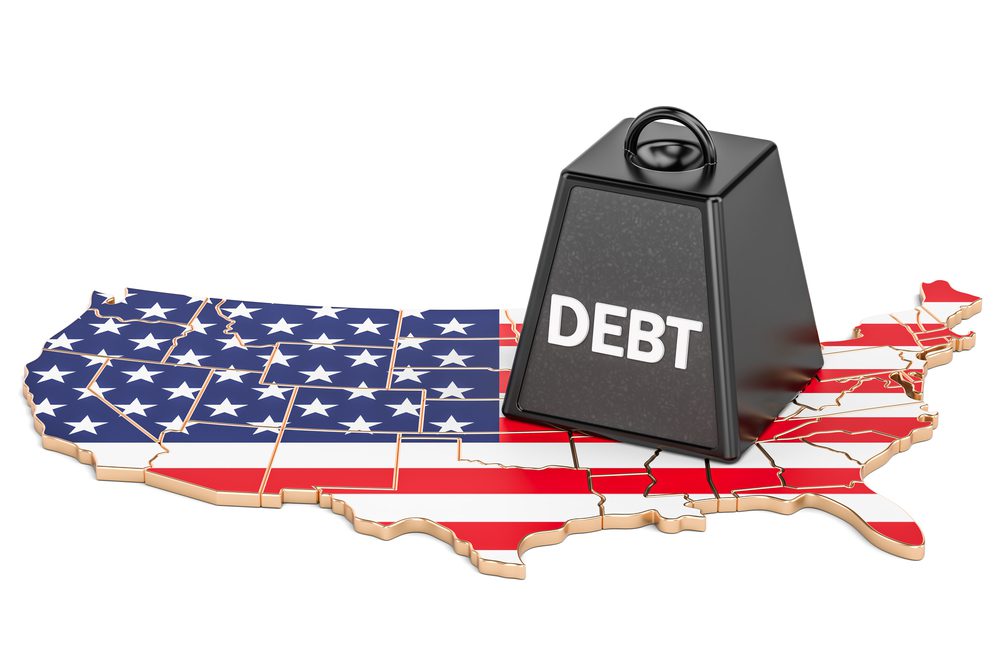
U.S. Debt Crisis Alert
There are growing signs that the United States is heading for a Greek-style fiscal crisis. It is not imminent, but close enough to cause real worries for anyone interested in the U.S. economy.

There are growing signs that the United States is heading for a Greek-style fiscal crisis. It is not imminent, but close enough to cause real worries for anyone interested in the U.S. economy.

Every government with debt on hand, and especially those with debt levels that are already unsustainable, must get to work on a contingency plan for the coming recession.

The socialist welfare state is inherently unaffordable. It destroys its own tax base and leads to economic stagnation.

A debt crisis sweeping across both continents has the potential of bringing about a new global depression. Governments have no room to use fiscal policy to mitigate the crisis; their monetary policy capabilities have already been depleted in responding to the recent pandemic. Yet there was no mention of this threat in Davos.

Bloomberg suggests that consumers “sitting on 700 billion-euro ($753 billion) cash” is reason enough to predict macroeconomic resiliency in Europe, but this report is contradicted by findings by Eurostat on retail trade in the euro area and the EU as a whole.

A new debt crisis looks unavoidable. There is practically no interest in fiscal reforms across Europe, leaving the continent vulnerable to a destructive downward spiral of rising interest rates and structural budget deficits.

President Macron wants the EU to reform budget rules to increase public-sector investments, which, he hopes, would lead to stronger economic growth and higher levels of employment. Macron’s vision is understandable, but his reforms are likely to defeat their own purpose.

There are many reasons for the current U.S. debt, one being that Congress has reduced its constitutional budget duty to a legislative bargaining tool.

Italian technocrat Mario Draghi says the EU needs the equivalent of three Marshall Plans—how would it get the money?

The only ties which appeared to matter in the Italian south were the immediate links of blood and marriage.

The socialist welfare state is inherently unaffordable. It destroys its own tax base and leads to economic stagnation.

A debt crisis sweeping across both continents has the potential of bringing about a new global depression. Governments have no room to use fiscal policy to mitigate the crisis; their monetary policy capabilities have already been depleted in responding to the recent pandemic. Yet there was no mention of this threat in Davos.

Bloomberg suggests that consumers “sitting on 700 billion-euro ($753 billion) cash” is reason enough to predict macroeconomic resiliency in Europe, but this report is contradicted by findings by Eurostat on retail trade in the euro area and the EU as a whole.

A new debt crisis looks unavoidable. There is practically no interest in fiscal reforms across Europe, leaving the continent vulnerable to a destructive downward spiral of rising interest rates and structural budget deficits.

President Macron wants the EU to reform budget rules to increase public-sector investments, which, he hopes, would lead to stronger economic growth and higher levels of employment. Macron’s vision is understandable, but his reforms are likely to defeat their own purpose.

There are many reasons for the current U.S. debt, one being that Congress has reduced its constitutional budget duty to a legislative bargaining tool.

Italian technocrat Mario Draghi says the EU needs the equivalent of three Marshall Plans—how would it get the money?

The only ties which appeared to matter in the Italian south were the immediate links of blood and marriage.

What some pundits see as “propping up the bond market” are in reality desperate measures to prevent a major U.S. bank crisis.

Why is it so hard for the ECB to admit that inflation is a monetary phenomenon?

“As long as it takes” is the West’s strategy towards the war in Ukraine. The problem is that Russia itself has now made this its own strategy.

The EU is in for a fiscal framework showdown between reformists and abolitionists. Who wins? Europe’s economic future hangs in the balance.
To submit a pitch for consideration:
submissions@
For subscription inquiries:
subscriptions@